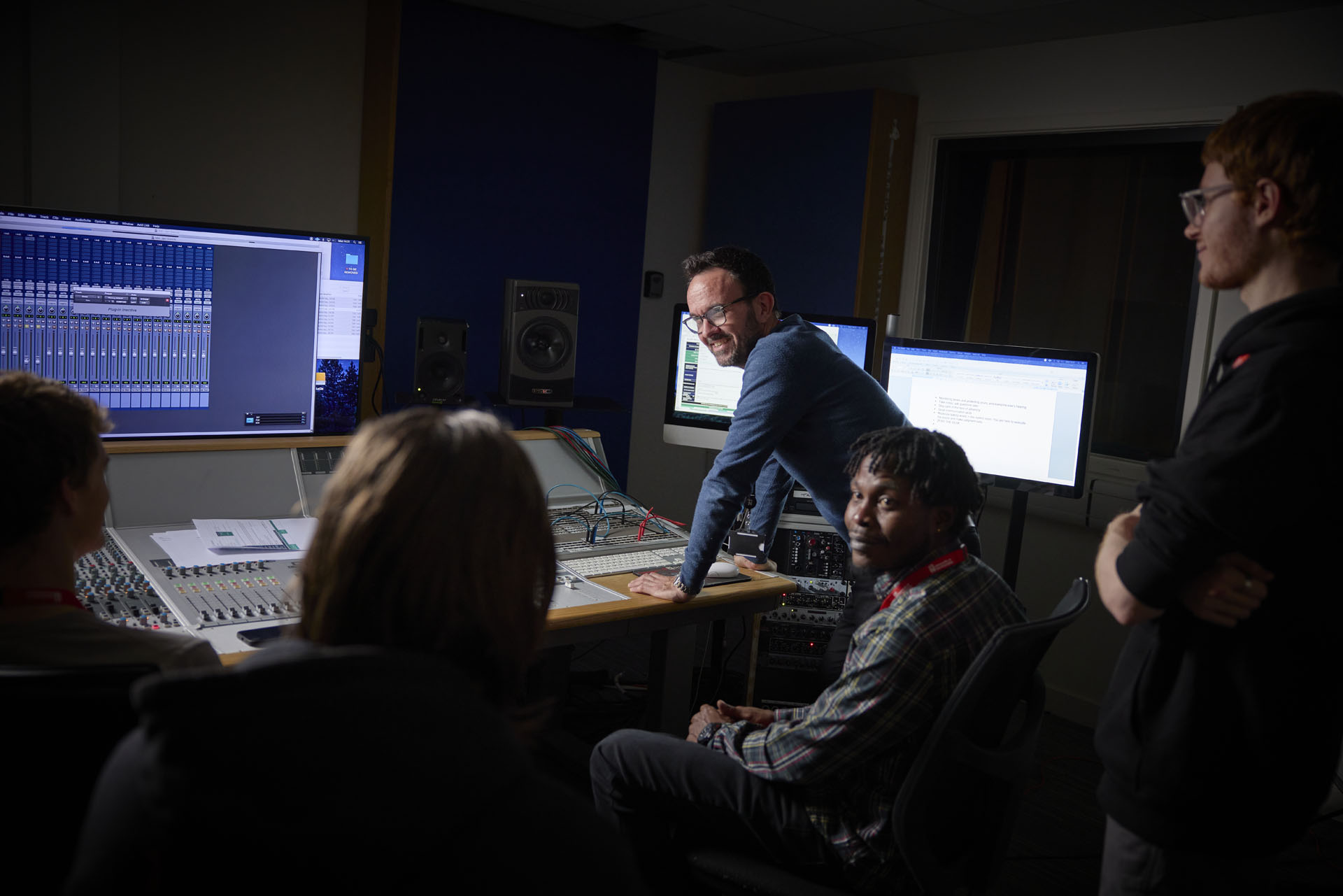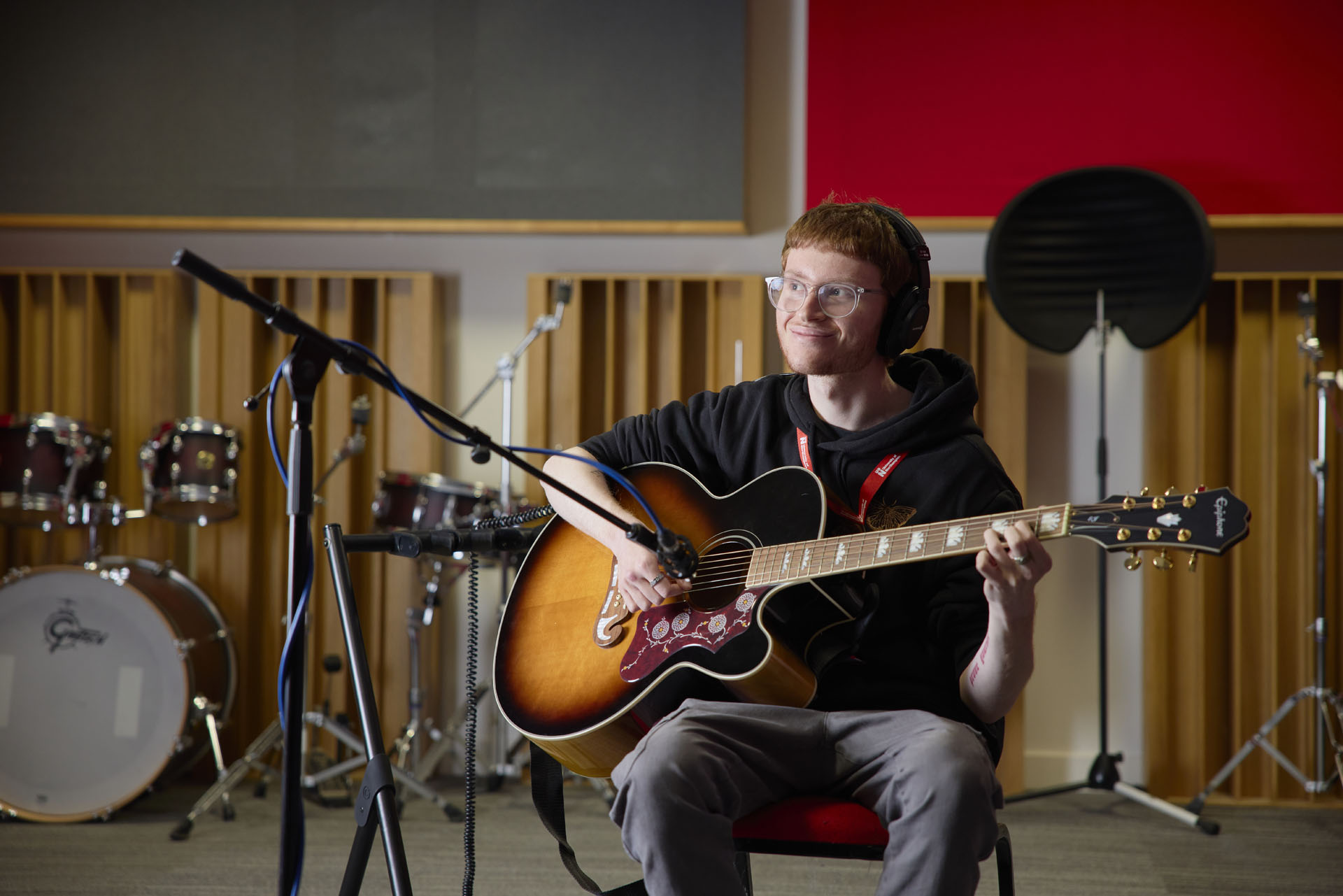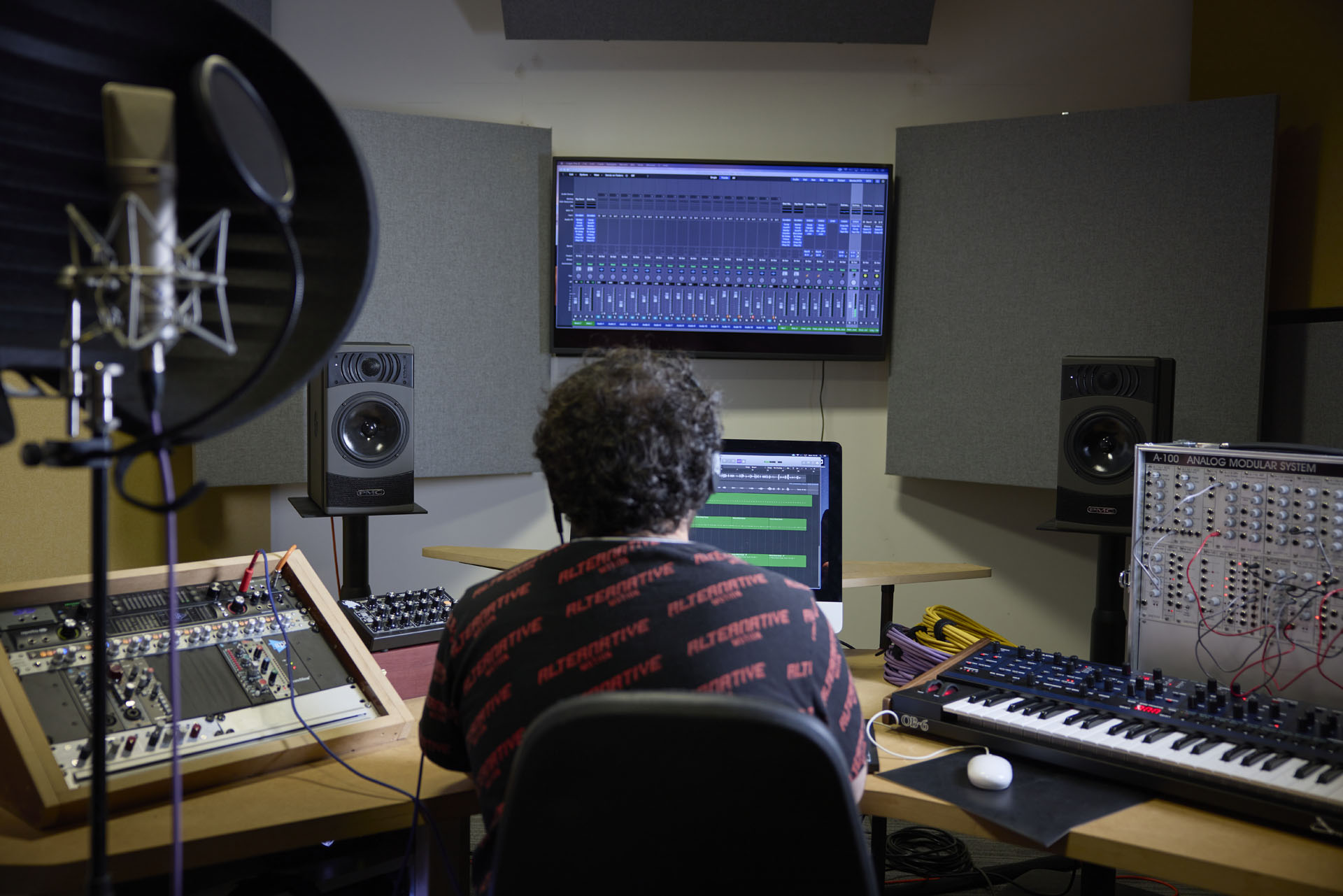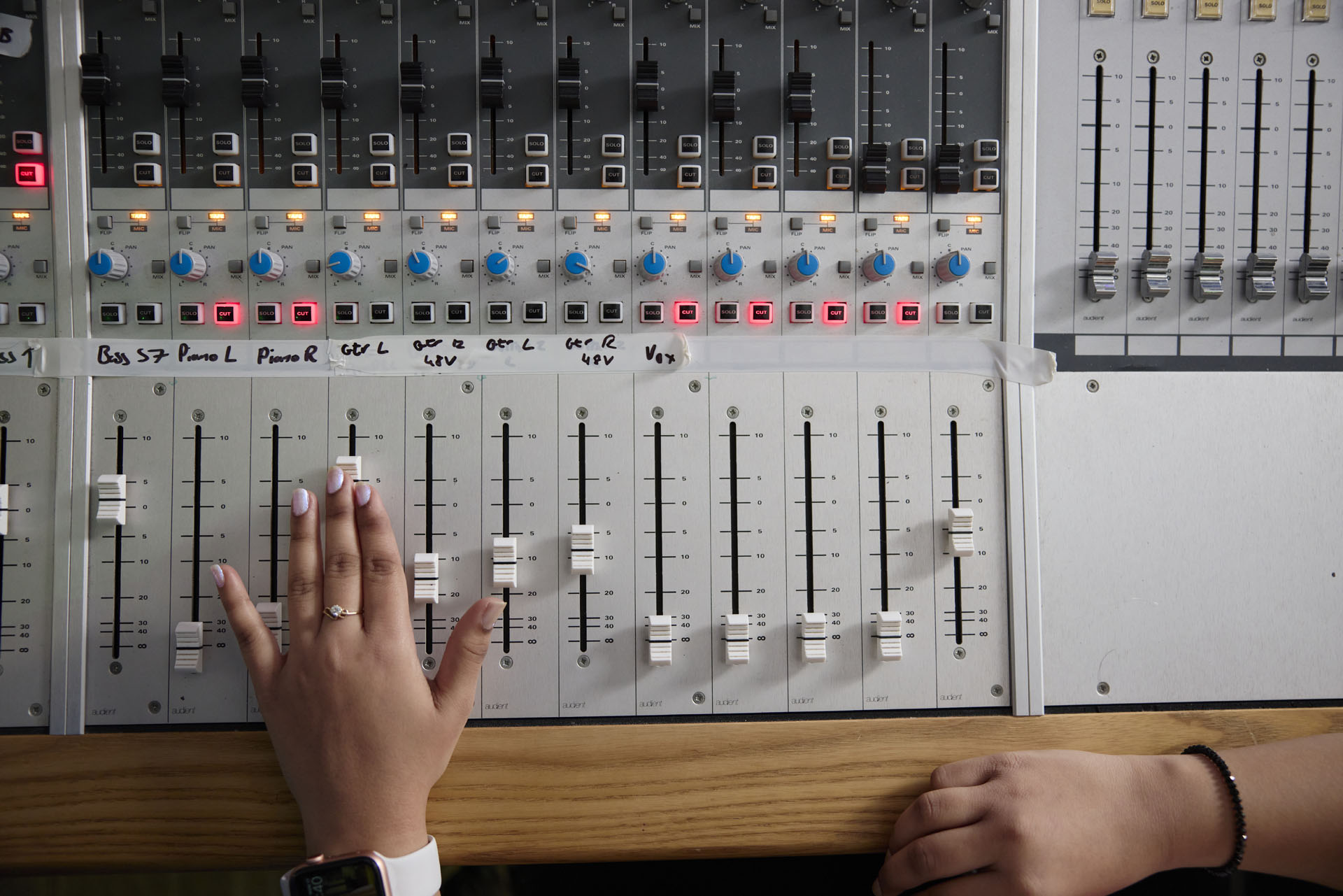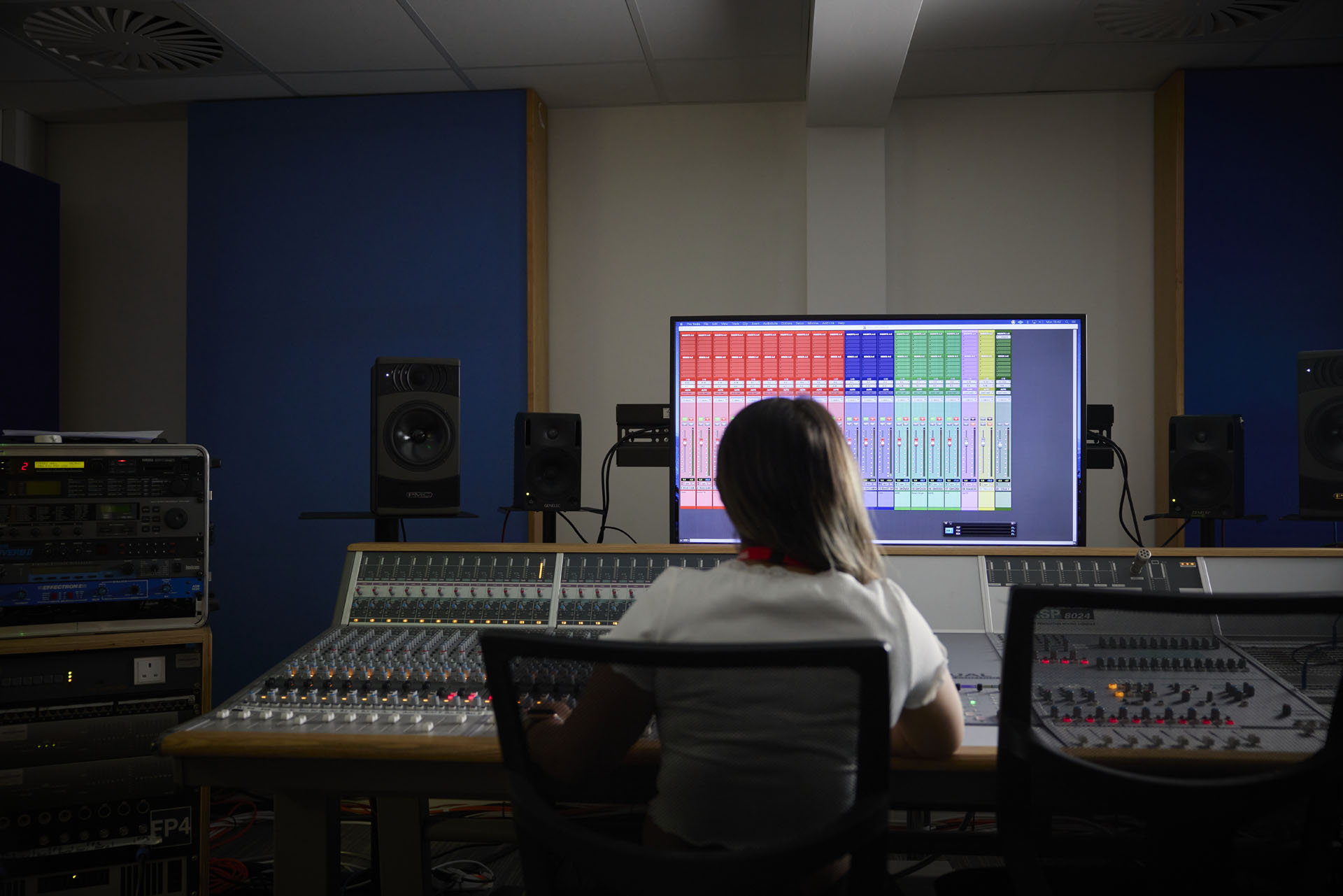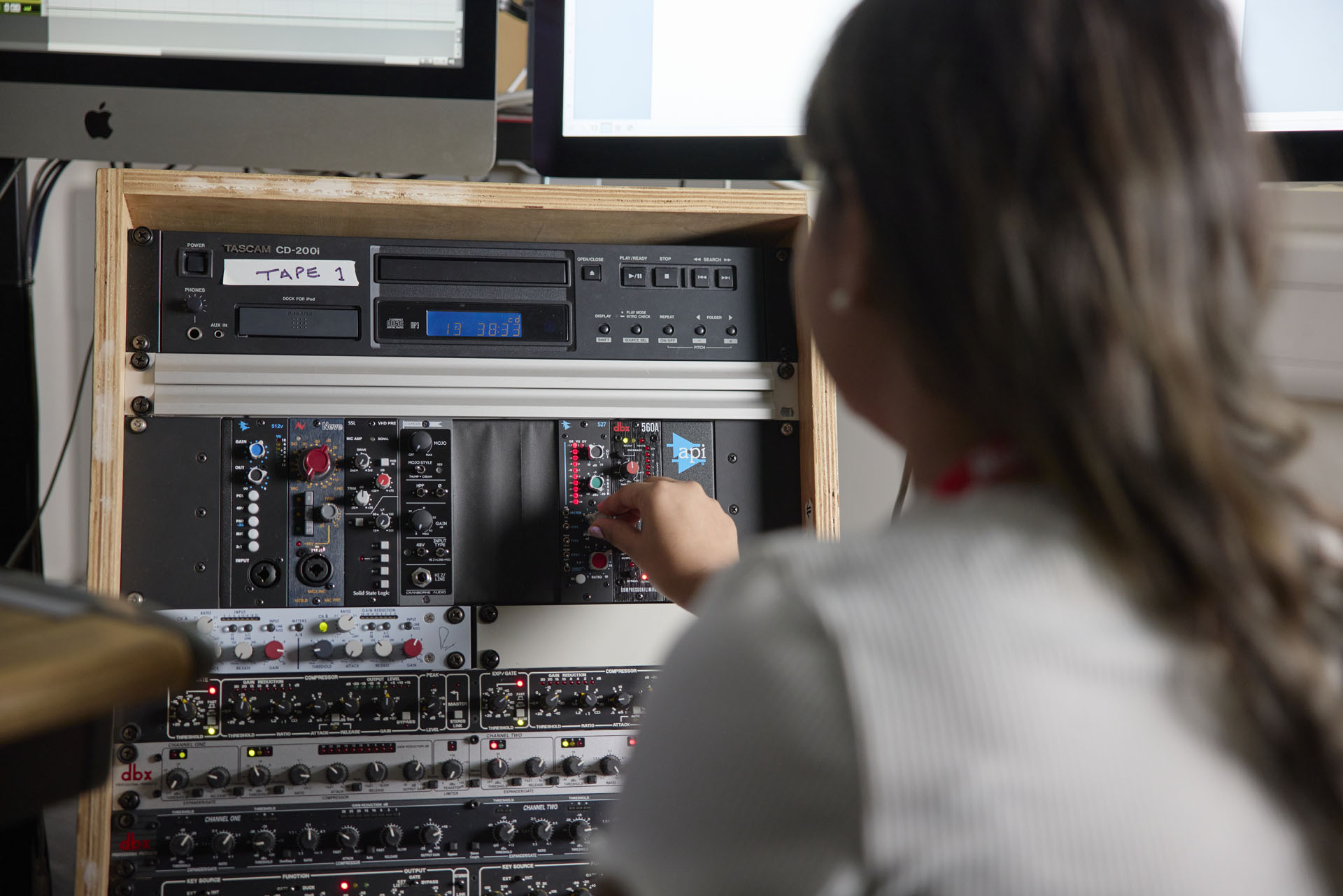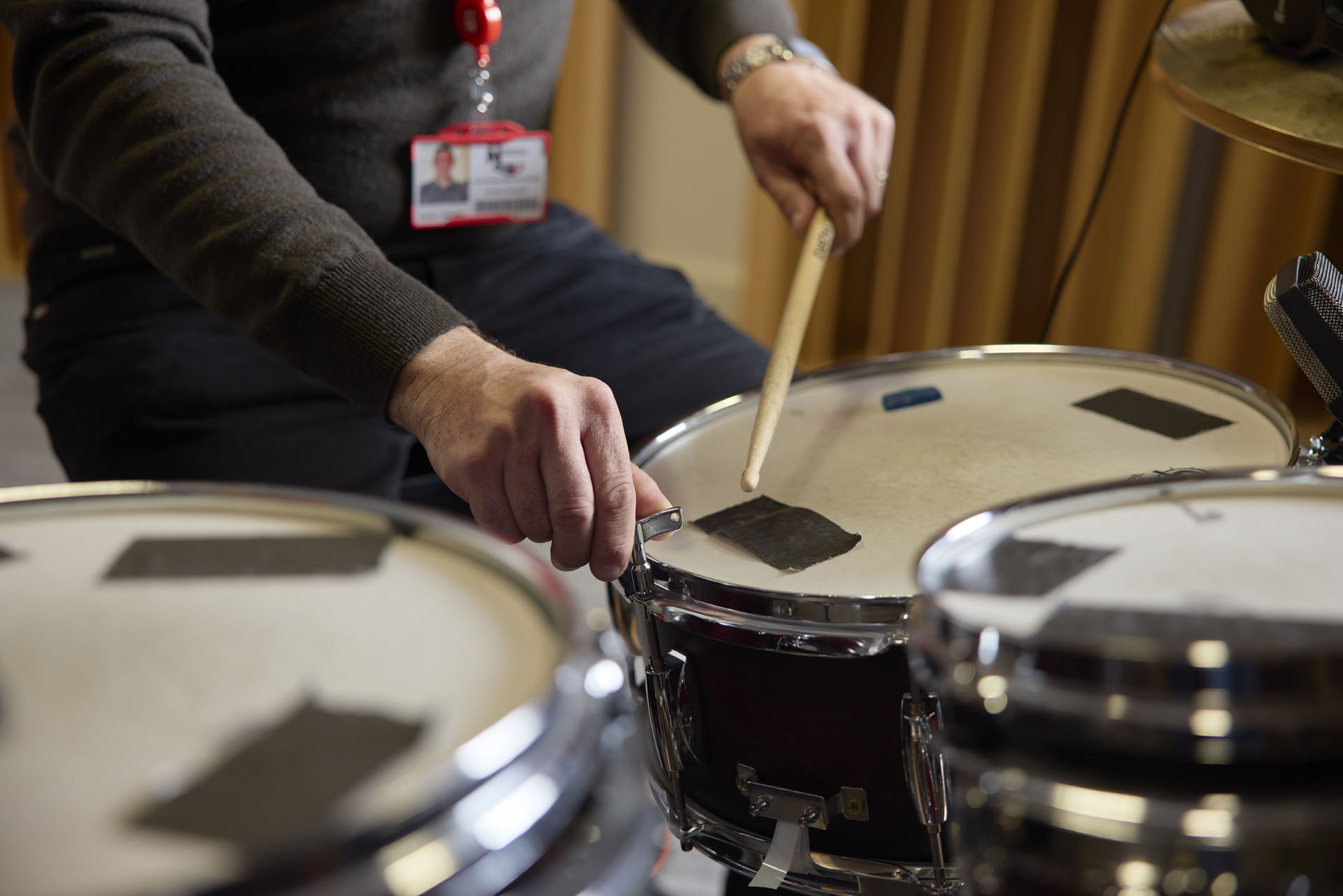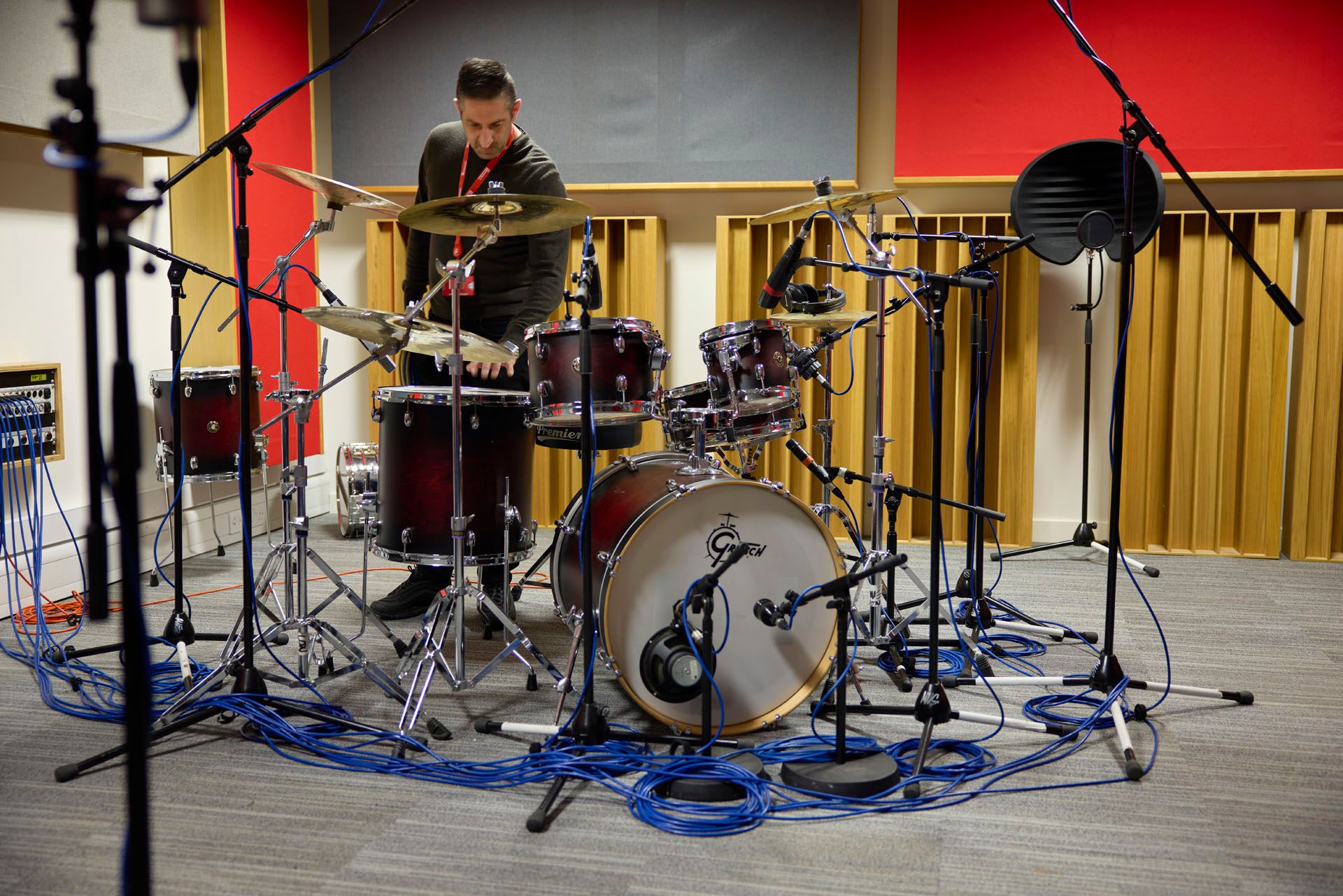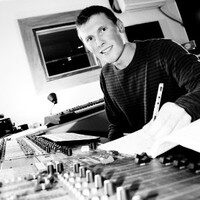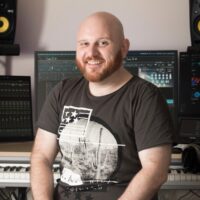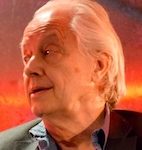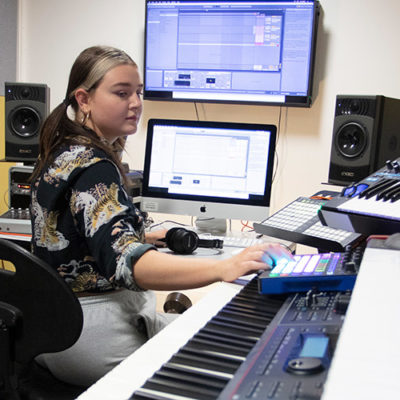Senior Lecturer in Popular Music
Faculty of Arts, Science and Technology
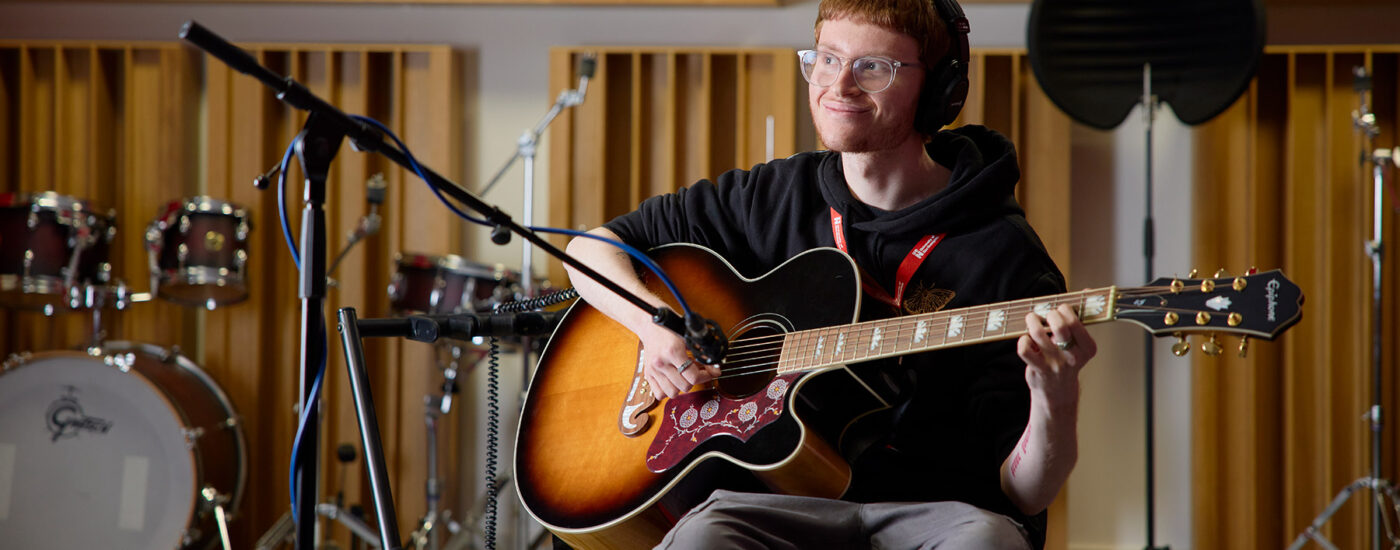
Popular Music BA (Hons)
Key Facts
-
UCAS Code
BA: W340
BA with Foundation: W341 -
Level
UndergraduateUG BA (Hons)
-
Duration
Full Time: 3 years
Full Time Foundation: 4 years
Part Time: 4 - 6 years
-
Starting
September
-
BCC at A-Level or,
DMM at BTEC -
Full Time: £9,535
Part Time: £1,585 (per 20 credits)
Integrated Foundation Year: £9,535 -
Full Time: £15,700
Integrated Foundation Year: £15,700 -
Development Hub (Waterside)
Updated 29/04/2025
Updated 29/04/2025
Find and develop your own individual route into the music sector with our Popular Music BA (Hons) course at the University of Northampton. This course is perfect if you’re a creative singer/ vocalist, bassist, drummer, guitarist, keyboardist or singer-songwriter looking to develop your technical, performance, musicianship and technology skills to a professional level.
You’ll learn the creative, music technology and study skills necessary to support you in your mission to be music Pro. In addition, we provide students the skills for wider employment, including in the teaching profession and further study should this be something you wish to pursue.
This course is Industry Accredited by JAMES representing APRS, MPG and associate industry bodies. Accreditation of a course by relevant industry bodies provides assurance to students and employers of its potential and value.

Highlights
- Taught by industry professionals and highly trained academics
- One-to-one coaching sessions on your main instrument/voice in Year 1
- Learn to use a professional grade recording studio
- Become part of one of the UK’s most exciting local music cultures, including opportunities to perform live on stage in various Northampton venues, as well as at the Northampton Music Festival
- Accredited by Joint Audio Media Education Support (JAMES)
- Introduction to a network of music businesses
- Specialised guest lectures and masterclasses for popular music and composition
- Guaranteed paid internship with the Northampton Employment Promise.*
- HP Laptop and software included with this course. Terms and Conditions apply
Entry Requirements
A typical offer for Popular Music is:
- BCC at A-Level or,
- DMM at BTEC/Cambridge Technical or,
- Pass (C and above) at T Level
We welcome applications from students with a mix of A levels and BTEC/Cambridge Technical qualifications.
Course Content
2025/26 Tuition Fees
- UK Full Time: £9,535
- UK Part Time: £1,585 per 20 credit module
- UK Integrated Foundation Year: £9,535 for the foundation year; thereafter standard fees apply
- International Full Time: £15,700
- International Integrated Foundation Year: £15,700 for the foundation year; thereafter standard fees apply
Fees quoted relate to study in the Academic Year 2025/26 only and may be subject to inflationary increases in future years. UON will adjust UK fees annually in line with Government Policy.
Staff
Careers and Employability
This course is an excellent foundation for careers in all parts of the music industry including: musician, performer, producer, songwriter, artist liaison and more.
Facilities
Your teaching will take place at Waterside Campus, specifically the newly renovated Development Hub.
Specialist facilities include:
- Three fully kitted rehearsal rooms and stage performance area
- Live performance hardware such as Vox amps, Marshall MG 4×12 amps, Orange Crush Pro amps, Peavey Amps, Ampeg PF500 Bass amplifiers, Yamaha Stage Custom kits, Gretsch Drum Kit, Studio AAX, full PA, three rehearsal rooms
- Two grand pianos – Bechstein Boudoir Grand, Steinway Studio B, two Yamaha upright pianos
- Two Mac Suites: running Logic Pro X, Musescore, Ableton 10, Native Instruments Komplete 12, Pro Tools and more
- Two recording studios: running Pro Tools and Audient 8024 mixing console, Neve 1073LB preamps, SSL VHD preamps, Apollo 8P, Apollo Satellite Octo, Rupert Neve Designs 5043, SoundToys bundle, Arturia V studio, Universal Audio Ultimate, Spitfire Audio Hybrid, Steven Slate Drums. ProTools HD enabled recording studio
- Microphones: U87 condensers, AKG414s, Telefunken FET M60s, AKG 451s, Radial DI boxes, Radial SGI and re-amp boxes, and a full range of other industry mics
- Hardware synthesisers such as Arturia DrumBrute, Novation Circuits, Roland TB303, Behringer Deepmind 12, Roland Juno DS, Novation Bass Stations, Ableton controllers – Launchkey 49s, Launcontrol XLs, Launchpad Mark 1 and Mark 2
- Field recorders and boom mics for music and media work
- Networking sessions and opportunities with film students.
Special course features include:
- One-to-one instrument/vocal coaching sessions (on your main instrument in year 1)
- Performance, musicianship and theory training
- Learning to use music technology
- Research and academic writing skills
- Exploring the music industry in the digital age
- Using a professional grade recording studios
- Top-notch facilities and equipment.
